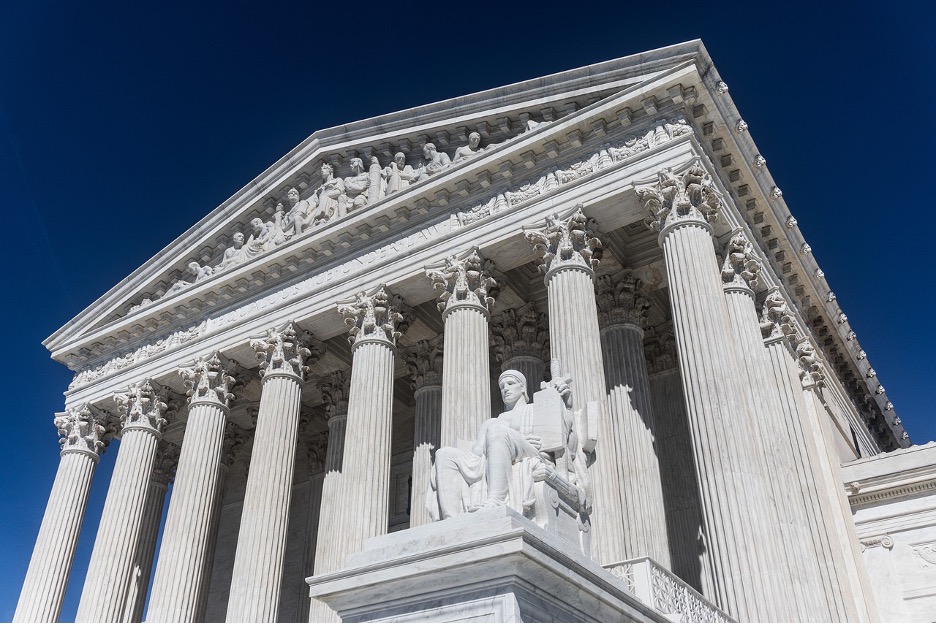By Amelia Trello, Staff Writer

This Halloween, the US Supreme Court revisited the long held precedent concerning affirmative action.[1] After decades, there is now a strong likelihood that the current conservative Supreme Court will overrule this precedent.[2] The Court is considering whether universities can continue to take race into account during the admissions process.[3]The conservative group Students for Fair Admissions (SFFA) is leading both challenges.[4] SFFA argues that Harvard and the University of North Carolina’s “programs violate equal protection principles, dash the promise of a colorblind society, and discriminate against Asian Americans.”[5] Although affirmative action has been an integral precedent in this country’s educational system, the Court’s overturning of Roe v Wade has citizens concerned with what they will decide for the consideration of race in the education system.[6]
The founder of SFFA Edward Blum has been fighting for decades against what he believes are racial preferences during the school admission process.[7]According to Blum, “[w]hat is happening on college campuses today is that applicants are treated differently because of their race and ethnicity. Some are given a thumbs up. Some are given a thumbs down.”[8]
Many people in this country misunderstand what affirmative action entails.[9] Those rooting against affirmative action tend to base their beliefs in common myths.8 Contrary to popular belief, schools with affirmative action policies do not have quotas for the number of students of a certain race.[10] In fact, having a policy like this would be unconstitutional, as decided by the Supreme Court in 2003.[11]
Further, affirmative action policies do not give students of color an “automatic in.”[12] Per the constitution, colleges are permitted to use a “wholistic evaluation process for students that takes race into consideration as one factor.”[13]Additionally, universities may only implement a policy like this if they have attempted to increase diversity by race neutral methods such as GPA or testing. [14]
Many people against affirmative action hold to the belief that diversity admissions should be based off factors such as income rather than race.[15] However, affirmative action effectively targets diversity issues in ways that an income-based focus cannot.[16] Higher income can allow families to live in good school districts, enroll in additional test prep courses and pay higher tuition, but systemic racism still creates a barrier to resources.[17]
Sadly, “centuries of systemic racism and intergenerational transfers have provided white households with far more wealth than households of color, even after controlling for income.”[18]Due to hundreds of years of oppression, students of color, especially Black students, are more likely to attend underfunded schools compared to similarly economically situated white students.[19]Even wealthier students of color face direct educational barriers due to systemic racism.[20]In fact, students of color are less likely to be referred to gifted programs compared to their white counterparts.[21]
Affirmative action emerged as a tool to create equal opportunity during the Civil Rights Movement.[22]Unfortunately, “millions of Americans continue to experience race and gender barriers in education, contracting and employment.”[23]The simple fact is that even with decades of affirmative action under our belt, students of color are still largely underrepresented across campuses nationwide.[24] If the Court were to rule against affirmative action, representation on college campuses around the country would likely decrease.[25]
[1]https://www.nytimes.com/live/2022/10/31/us/affirmative-action-supreme-court
[2] https://www.npr.org/2022/10/31/1131789230/supreme-court-affirmative-action-harvard-unc
[3] https://www.cnn.com/2022/10/30/politics/harvard-unc-supreme-court-affirmative-action/index.html
[4] Id.
[5] Id.
[6] Id.
[7] https://www.npr.org/2022/10/31/1131789230/supreme-court-affirmative-action-harvard-unc
[8] Id.
[9] https://www.cnn.com/2017/08/02/us/affirmative-action-misconception-trnd
[10] Id.
[11] Id.
[12] Id.
[13] Id.
[14] Id.
[15] https://www.americanprogress.org/article/5-reasons-support-affirmative-action-college-admissions/
[16] Id.
[17] Id.
[18] Id.
[19] Id.
[20] https://www.aclu.org/other/striving-equal-opportunity-why-aclu-supports-affirmative-action#:~:text=Affirmative%20action%20helps%20ensure%20equal,giving%20everyone%20a%20fair%20chance.
[21] Id.
[22] Id.
[23] Id.
[24] Id.
[25] Id.